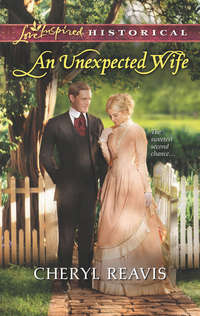
Полная версия
The Bride Fair
“For you, I reckon, Sir. This here whor—I mean, woman—I seen her downstairs just now, and I reckon she’ll be wanting them.”
“Then give them to her.”
“Well, they ain’t exactly hers, Sir, even if the colonel did promise them to her. Colonel Hatcher, he called them contraband, because of who they really belong to—but I’m thinking it’s too late in the day for them to be that.”
Max stared at the man, trying to follow his convoluted tale.
“‘Who they really belong to,’” Max repeated. “Yes, Sir. Miss Maria Rose Markham. Colonel Hatcher billeted hisself in her daddy’s house. Them earbobs belong to her and they went missing. See, the colonel had a bit of interest in the lady, but she wouldn’t have it—she had two brothers and a fiancé killed at Gettysburg—her brothers gave her them earbobs before they went off to war—one of them weren’t but fifteen. But even if she hadn’t lost her brothers and her beau like that, she just weren’t the kind to be impressed with the—”
Perkins abruptly stopped, and clearly had no intention of continuing.
“Speak freely, man,” Max said, but Perkins still had to think about it. It was not a sergeant’s prerogative to assess a colonel’s character, even when asked.
“Well, Sir,” he said finally, “Colonel Hatcher, he was fond of telling people that his family came from these parts—he said he had this here relative what was a big Indian fighter and military advisor a hundred years ago. Only these people here keep records of everything, and somebody found a mention of a Hatcher in the court accounts—how he was put in stocks all the time for drunken and lewd behavior—insulting decent women and the like. Didn’t take word long to get around.”
“No, I don’t expect it did.”
“People were kind of laughing behind their hands about it, and that got Colonel Hatcher all the more determined about Miss Markham. Some thinks the earbobs was a kind of punishment for her. That it might have amused the colonel to take something what was dear to her and give it to a whore. Or maybe he thought he could make her trade for them. Sir,” the sergeant major added as an afterthought.
Max sat there. He had enough trouble with the apparently ongoing arson in this town. He had no inclination whatsoever to deal with the epic drama his sergeant major had just revealed.
“Dare I hope arrangements have been made regarding my quarters?” he asked after a moment.
“Ah—yes, Sir. The major was thinking to put you in the same house as was Colonel Hatcher. It could get kind of crowded over there, though, Sir, if Miss Markham happened to move a bunch of kinfolk in now that Colonel Hatcher is gone. It might be you’d be wanting a hotel, Sir,” he added hopefully. “Mansion House or Howerton’s right across the street—”
Max looked at the sergeant major. So. Miss Markham—apparently the woman who had met him at the station—had a champion in this sergeant major, one who wanted the new colonel to know that his behavior regarding her would be duly noted.
But Perkins could rest easy. Max had no designs on Miss Markham’s virtue. He did, however, wish to continue to inconvenience her. He wasn’t all that different from the men under his command. He had just been on the receiving end of a Rebel woman’s disdain, and, like his men, he took it personally.
“No,” Max said. “The Markham house will suit me. If there are additions to the household and I find it too noisy, I have the authority to thin them out. My belongings will be sent here from the station. Have them moved to the house—and make sure the Markham pantry is full and there is somebody to cook and to orderly. And find me a decent mount so I can see about this latest fire. Then, I want you to take some men and close this town down. Every store, every saloon, every bar and grog shop. And the whorehouses, too, while you’re at it. All church services and public and private gatherings are canceled until further notice. The citizens are to be off the streets and in their homes. Start with that bunch downstairs.”
“Yes, Sir! Anything else, Sir!”
“I want all these papers sorted, by date and by urgency—and then I want a burial detail.”
“Burial detail, Sir?”
“That’s what I said. And find me some small pine blocks—like so,” he said, showing him the size with his hands. “Make sure they’re finished—no bark—scraps from a lumber mill if there is one—but you can put that at the bottom of the list for now.”
“Yes, Sir!” Perkins gave a smart salute and left a happy man, in spite of Max’s choice of residence and his mishmash of orders. Occupation duty was tedious at best, and enacting what amounted to martial law was clearly more to the soldier’s liking.
Max sat at the desk, then reached for the red-velvet box again, turning it over in his hands before he opened it. After a moment he abruptly closed the box and put it into his uniform pocket.
Chapter Two
Maria Markham stopped abruptly in the wide center hallway, listening again for the sound of an approaching wagon. The front door was shut, but the downstairs windows were still open to let in the evening breeze until the mosquitoes began to swarm. She stood there, her sense of dread completely taking her attention away from the task of closing up the house for the night and lighting more lamps than they could afford to light.
She had been waiting for the new colonel all afternoon, and she still had no idea what she would do when he finally arrived. She knew what she would like to do, of course. She would like to bar the door and turn him away. She would like to send him and his kind back to whatever hellish place they had come from.
Pennsylvania.
Colonel Woodard came from Pennsylvania. He had served in Rush’s Lancers, a supposedly elite cavalry regiment made up of rich young men from Philadelphia society. His having been a Lancer was likely the reason he was in such an elevated position now—or so her father said. Her father made a point of keeping up with what he considered the pertinent details regarding the occupation army, and he was the one responsible for the new colonel’s being billeted in the house in the first place—and for the two others before him.
“It is for the money, Maria Rose,” he’d explained patiently when she had protested having yet another “guest,” as if she didn’t already know what dire financial straits they were in. The only problem with that logic was that the Yankees never paid for anything—least of all their housing. They “appropriated” whatever they wanted all over town and handed out vouchers the quartermaster never got around to honoring. The town was forever sending some kind of delegation to military headquarters to broach the subject of monies owed, but far as she knew, her father had received no rent payment the entire time, Hatcher, the previous commander had been living here. She had no expectations that this new one would be any different.
Colonel Woodard.
The man she was having to light the lamps for, because she thought he would come into the house unannounced, barred door or not, and she did not want to encounter him in the dark.
She had been afraid of him today in the buggy. He had been civil enough, but his civility didn’t hide what she believed to be his true nature. She realized immediately that he didn’t suffer fools gladly, but, for whatever reason, he chose to keep a tight rein on his emotions. Even so, she could feel how volatile they were, how close to the surface, and he had a kind of dangerous intensity about him she found more than a little disconcerting. She had no idea what people must have thought, seeing them riding out to the prison like that. It wasn’t proper, and the colonel knew it. He made it very clear that the delicate sensibilities of the people in this town meant nothing to him.
She was certain she heard a wagon now, and she stepped quickly into the parlor so that she could peep out the front window. If it was Colonel Woodard, she would take herself to another part of the house. The last thing she wanted the Yankee to think was that she’d been dancing in attendance by the front door on his account.
It was nearly dark, but she could see the wagon clearly enough—one of the farmers making a delayed start home, probably because of the fire. Every able-bodied man had been pressed into service. She couldn’t see any flames now, or even a glow in the sky, but she could still smell the smoke. The wagon rattled on by, leaving nothing in its wake but the sounds of a warm summer night.
She took a quiet breath and let the resentment she’d been keeping at bay wash over her. She had tried so hard to talk her father out of letting another one of them into the house. It was bad enough having to encounter occupation soldiers all over town. They were always underfoot on the streets and in the shops. Some actually came to church and participated in the services—much to the delight of the young girls, who were more than willing to overlook a Yankee officer’s part in the late war for the possibility, however remote, of matrimony.
To that end, some of them had raised simpering to a high art. It had gotten to the point that she could hardly bear to witness it, and she could expect a bevy of eager young females at the front door as soon as word got around that the new—and possibly unmarried—colonel was billeting with the Markhams. If—when—they discovered that he was supposedly from a well-to-do family, too, she would be absolutely inundated with visitors, whether she wanted them or not.
Maria gave a quiet sigh. Perhaps she shouldn’t blame the girls—or their mothers, who must surely sanction their behavior. Who else was there to marry? The war had decimated the Confederacy’s young men. So many of them were dead or invalid, and it was a bitter thing for those who had survived more or less intact to have to live now in a conquered South. Some of them made no pretense at even trying. They took themselves off to California or to Mexico or to South America, leaving the uncertain resurrection of their homeland to whoever remained.
She resented their departure as much as she resented the new colonel’s presence in the house. Having Colonel Woodard here was a classic example of adding insult to injury, and she simply didn’t understand why her father couldn’t see that. Both his sons—her beloved brothers—had died at Gettysburg. Quiet, scholarly Rob, who had treated her as an intellectual equal simply because she was so eager to learn about matters beyond the kitchen and household. And mischievous, lighthearted Samuel, who could always make her laugh.
She missed them both terribly, and her only comfort was that they had been spared seeing what life here had become. Everything had changed. It wasn’t simply the deprivations, the lack of food and money. It was the lack of joy and living day after day in relentless, all-prevailing sorrow.
She caught a glimpse of herself in the gilt-framed mirror on the far wall. The mirror had been cracked three years ago by one of General Stoneman’s raiders in an effort to get it out of the house before one of his superiors saw him trying to steal it. She moved to the side so that she could see herself better and immediately wished she hadn’t. She was so tired, and she looked it.
What has happened to me?
Her brothers would not have recognized her. She hardly recognized herself anymore. She had never been a beauty, but she had been a cheerful and optimistic person.
Once.
People had enjoyed her company. She had never lacked for invitations to balls and parties. Billy Canfield had wanted to marry her. He had spoken to her father, and they had received the blessings of both sets of parents. It seemed so long ago now, but she had that one small consolation to hang on to, at least. She had once been asked—and only she would ever know that his asking had meant nothing.
But her life was about to change for the worse, whether the new colonel billeted himself here or not. She had no hope of escaping her fate and very little time remaining before she was found out. If only she were devious enough and fetching enough to join the younger girls in their relentless, giggling quests for a husband. A husband would solve everything—even if it were one of them—if she could act quickly enough and if she could put aside the dishonor of such a venture and somehow dredge up the self-confidence to attempt it. She still smarted at the memory of Colonel Woodard’s scrutiny at the train station. His assessment of her had been subtle—not at all like the leering she’d come to expect from Colonel Hatcher and his kind. But it had been no less upsetting. She had seen the new colonel study her face, her breasts—and then totally dismiss her.
Like Billy.
Someone rapped sharply on the front door, making her jump. She peered out the window again. A carriage had stopped out front, but she didn’t recognize it. Apparently the colonel had chosen a conveyance in keeping with his position this time—or perhaps there had been no lone women in buggies handy.
The rapping came again, much louder this time.
“Maria Rose!” her father called from his upstairs sitting room. “Will you answer the door or must I!”
“I’m getting it, Father,” she called back, recognizing the threat for what it was. He was looking for an excuse to come downstairs and drink whiskey with a bunch of soldiers—even if they were in the wrong army—instead of coddling his bad heart as the doctor had ordered. She loved her father dearly, but he had to be the most exasperating man in all of Christendom. When his health improved even a little, he never concluded that the doctor’s regimen was working. Instead, he promptly decided that it wasn’t needed any longer. She ran herself ragged trying to keep him from overdoing, failing and then feeling guilty for his numerous setbacks. It had been the same when her mother was living. Somehow his illness was entirely their responsibility. If he felt any personal obligation to follow his doctor’s advice regarding his own health, she certainly couldn’t tell.
“Maria Rose!” her father yelled again.
“I heard you, Father!”
She took a deep breath to brace herself for the coming ordeal, but the door flew open before she could get to it.
“Miss,” the soldier standing on the porch said. “I have Colonel Woodard’s trunk and belongings.”
He didn’t wait for her to give him leave to enter. He motioned two other soldiers to hurry along with the baggage and pushed his way into the house, forcing her to step back to give him room.
“Where will the colonel be quartered, miss?” he asked.
“Wherever he likes,” she said, because the question was merely a token one, and they both knew it. It wasn’t for her to say. She had had enough dealings with these people to understand the fine points. Colonel Woodard wasn’t a guest; he was a conqueror. He could pick and choose his accommodations as he pleased—and would, most likely—even if it meant she or her father would have to vacate them.
“Leave that here,” the soldier said to the two men carrying the trunk and a number of satchels and leather cases.
Two more soldiers came in through the front door loaded down with wooden boxes, a basket of eggs, a ham and three sacks of flour, tracking red mud on the bare wood floor all the way. The floor was walnut—short pieces done in an intricate chevron pattern that caused much admiration among visitors to the house and cleverly hid the fact that, at the time, the scrap pieces were all her father could afford. It was yet another example of his resourcefulness, but it was she who would have to get down on her hands and knees to brush the mud out of the crevices.
“The colonel’s provisions, miss. Light the way to the pantry, if you please.”
She didn’t please, but she picked up the lamp from the hall table and carried it in the direction of the kitchen. They would have no problem locating which larder had been set aside exclusively for the colonel. It would be the one protected from civilian pilfering by a heavy padlock to which no one in the household had the key.
She looked over her shoulder toward the open front door, still expecting the colonel himself, but she could see no soldiers in the yard or in the carriage.
“You understand that these provisions are for the colonel’s use only,” the soldier in charge said as his men unpacked the boxes.
She didn’t answer him.
“It will save you a lot of trouble and grief in the long run, if you do, miss. The quarters for the colonel’s orderly—where are they?” He lit the lamp on the kitchen table.
“Colonel Hatcher’s orderly stayed in the room under the stairs.”
“See to it,” he said to a soldier nearby, handing him the lamp.
“Have you been advised about the new curfew, miss?” he asked as he took a key from his pocket and unlocked the pantry door.
“What new curfew?”
“You—and everybody in this here town—will have to remain in your houses and off the streets. There will be no going anyplace—no public gatherings of any kind—until further notice.”
“Surely church services aren’t—”
“Church is canceled.”
“But why?”
“The colonel means to get to the bottom of all this incendiary activity, miss.”
“I doubt very seriously that we are the ones responsible for burning our own town,” she said.
“Even so—the colonel’s got to start somewhere.”
“Where is he now?” Maria asked. “I would like to lock up the house after you leave.”
“Can’t say, miss. He’ll be here when he gets here. Somebody will need to stay handy to let him in.”
And Maria knew just who that “somebody” would be.
“Maria Rose!” her father yelled from upstairs. “Who is that down there with you?”
The soldier in charge broke into a grin. “Mr. Markham is awake then, is he? I’ll just go up and speak to him.”
“He needs to be resting,” Maria said—to no avail. The soldier went off happily in the direction of her father’s voice, leaving her in the kitchen with the rest of the underlings.
She didn’t stay. She walked back to the parlor and sat down in a corner by the front windows to wait for them all to leave. From time to time, she could hear her father’s laughter upstairs. Her father. What would he say when he found out about her? How could she ever tell him?
But she wouldn’t have to tell him, if she stayed here much longer. Sooner or later, he would know. Everyone would know. Her body was already changing. She could no longer rely on it not to betray her at every turn. She was forever on the verge of fainting or weeping or being sick. The smell of frying pork had sent her bolting to the slop bucket more than once this last week. It was a miracle that her father had not noticed.
She tried to tell herself that she wasn’t the first woman to be in this situation. She would just have to go someplace until the child could be born—if she could find the money and someone willing to take her in. Perhaps if she said she was a war widow—
But there was no money.
And if there had been, she would have to ask her father for it. She’d have to put his weak heart at risk and tell him why she needed it. And even if she went, people would still find out. They always did. The very fact that a young, unmarried woman left town for a time—no matter what the excuse—was enough to raise suspicions. How could she bear it? For the rest of her life, people would whisper behind their hands, wondering about her prolonged absence and only too eager to share their own opinion about whether Maria Rose Markham had been ruined and who had done it.
If Billy were here—
“He would be no help at all,” she whispered.
She abruptly put her face in her hands, trying hard not to cry. Tears were not the answer. She had already cried enough to know that.
“Miss?” the soldier in charge said from the doorway.
She looked up, startled and more than disconcerted that one of them might have witnessed her moment of weakness.
“The colonel said to leave this with you,” he said, crossing the room and handing her the padlock key.
She hesitated, then stood and took it.
“Colonel Woodard has the certification that you took the Oath of Allegiance on file in his office. He expects you to honor it—so try not to sell everything off before he gets here.”
Maria opened her mouth to say something and couldn’t. She was literally speechless. She might steal the colonel’s provisions if anyone she knew were going hungry and she thought she could get away with it—but she wouldn’t sell them.
The soldier grinned and touched the bill of his cap. “Good evening, miss. Oh, and your father is asking for his toddy.”
“You didn’t give him anything to drink, did you?” she asked, still insulted.
“Ah—no, miss.”
She looked at him. He grinned wider.
“I recognize you for the liar you are, Sir,” she said.
“Good evening, miss,” he said again, chuckling to himself as he led his muddy-footed subordinates out the front door.
Maria waited to make certain they had gone, then walked into the hallway, still holding the padlock key. She stood looking at the colonel’s pile of belongings. One leather case was quite large and didn’t appear to have a lock of any kind. It took a great deal of effort on her part not to see if she could open it. She liked to think she was an honorable person, regardless of her Pandora-like inclinations. She didn’t go around snooping in other people’s baggage—even if it did belong to a Yankee—but the temptation was great, nevertheless. She wasn’t interested in military secrets, only in knowing what sort of man this Woodard was, and there might be all manner of information about him in the case.
“Maria Rose!” her father yelled from upstairs. “My toddy!”
“I believe you have already had your toddy, Father!” she called back.
It took the better part of an hour to get him finally situated for the night—and even then she had to bribe him with a cigar in lieu of the spirits he wanted and listen to him expound on the trials and tribulations of having a “willful girl child” before he would agree to take himself off to bed.
She stayed downstairs and put out the lamps she had lit, after all. She couldn’t—wouldn’t—waste the precious oil on the belated colonel. To keep busy, she swept up the muddy footprints as best she could by candlelight, then made sure the doors were locked.
She didn’t dare go on up to bed. She sat dozing at the kitchen table instead. Everything was so quiet. Nothing but the ticking of the clock on the kitchen mantel and the creaks and cracks of the house settling. She had left one kitchen window open, and every now and then she could feel the faint stirring of a breeze. If she had been less tired, she might have wondered why the colonel was so late. As it was, she had reached a point beyond caring. She heard the clock strike ten, then dozed again.
She awoke to a whispered curse, and she abruptly lifted her head. The candle was nearly gone, but she could see the colonel clearly. He was standing in the middle of the kitchen, holding a railroad lantern.
“I need your help,” he said without prelude. “I had intended not to wake you, but since you’re awake—here, take this.” He awkwardly thrust the lantern into her hands. “If you’ll come outside and hold it so I can see.”
He didn’t wait for her to either acquiesce or refuse. He walked out the back door. She had little choice but to follow after him—out of curiosity if nothing else. His horse stood tied to the porch post.
“What is it?” she asked, growing more alarmed.
“My horse is lame.”
She held the lantern higher—because he took her arm and pushed it upward.
“How did you get into the house?” she asked as he bent down to examine the horse’s foreleg and lift its hoof. But there seemed to be more of a problem with his hands than with the horse.
“My new orderly, Perkins. He’s very resourceful. I don’t imagine there is a place in this town he can’t get into if he’s of a mind. If he weren’t in the army, he’d probably be in prison. Well, the leg feels all right—no injury that I can see. It think it’s a stone bruise. Can you undo the cinch?”






